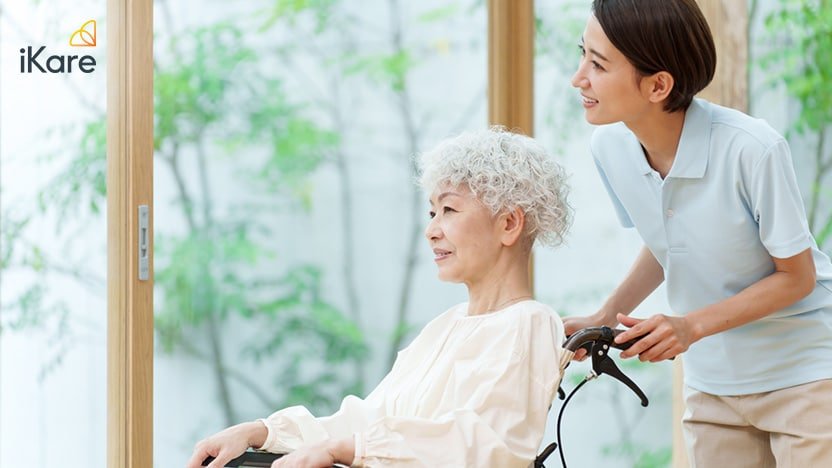
As Singapore’s population continues to age, an increasing number of individuals are stepping into the role of home caregivers. While dedicating oneself to the care of a loved one is immensely rewarding, it’s crucial to acknowledge the toll it can take on mental and emotional well-being. This article shares crucial strategies aimed at assisting caregivers in effectively managing stress and anxiety. Keep reading on to learn more.
Ask for help when needed

Caregiving can be overwhelming, and it’s important to recognise that asking for assistance is not a sign of weakness but a proactive step towards enhancing your ability to provide quality care and protecting your well-being. One valuable resource for caregivers is respite care services. Respite care offers temporary relief to caregivers by providing professional assistance in caring for their loved ones, acting as a crucial way to prevent caregiver burnout. Whether it’s for a few hours or a few days, these services allow caregivers to take a break, recharge, and attend to personal needs without compromising the care their loved ones receive.
Join a support group

Joining a support group for caregivers is an essential step toward nurturing mental wellness for caregivers. It creates a safe haven for sharing experiences, seeking advice, and discovering solace in solidarity amidst challenges. Being part of such a group can offer profound emotional validation, practical insights, and a sense of belonging that significantly reduces feelings of isolation. By engaging with others who share similar experiences, caregivers not only find emotional support but also gather invaluable strategies, enhancing their ability to navigate the complexities of caregiving with newfound strength and determination.
Have realistic goals
Setting realistic goals is fundamental to managing stress and anxiety as a home caregiver. Accepting limitations, both in terms of time and personal capacity, is crucial for maintaining mental and emotional well-being. Understand that perfection is not attainable in caregiving. Instead, focus on achievable objectives that prioritise both the well-being of your loved one and yourself. This can be done by breaking down tasks into manageable steps, prioritising them based on urgency, and recognising when it’s necessary to seek support from professionals such as caregiver services or delegate responsibilities. Through setting realistic expectations, caregivers can avoid feelings of inadequacy, maintaining a healthy mindset and ensuring sustainable care for your loved one.
Practice self-care rituals

Prioritising self-care is not selfish; it’s an essential aspect of maintaining mental and emotional equilibrium. Dedicate time each day to activities that recharge and rejuvenate your mind and body. Whether it’s a short walk, meditation, reading, or pursuing a hobby, these moments of self-care are crucial for replenishing your energy and reducing stress.
Additionally, ensure you maintain a healthy lifestyle by eating well, exercising regularly, and getting sufficient rest. Remember, taking care of yourself isn’t just beneficial for you, but pivotal for providing quality care to those you love.
Learn more: Discussing About Caregiver Burnout
Being a home caregiver is a demanding role that requires both dedication and self-care. Armed with these strategies, you can navigate the challenges of caregiving with greater resilience, ensuring that continued compassionate care is provided while safeguarding your own well-being.
Looking to enhance your caregiving journey? iKare, a caregiver services provider in Singapore offers a comprehensive range of support services tailored to your needs. Get in touch today to find out how we can ease your caregiving responsibilities and elevate your quality of life.

